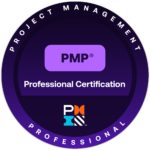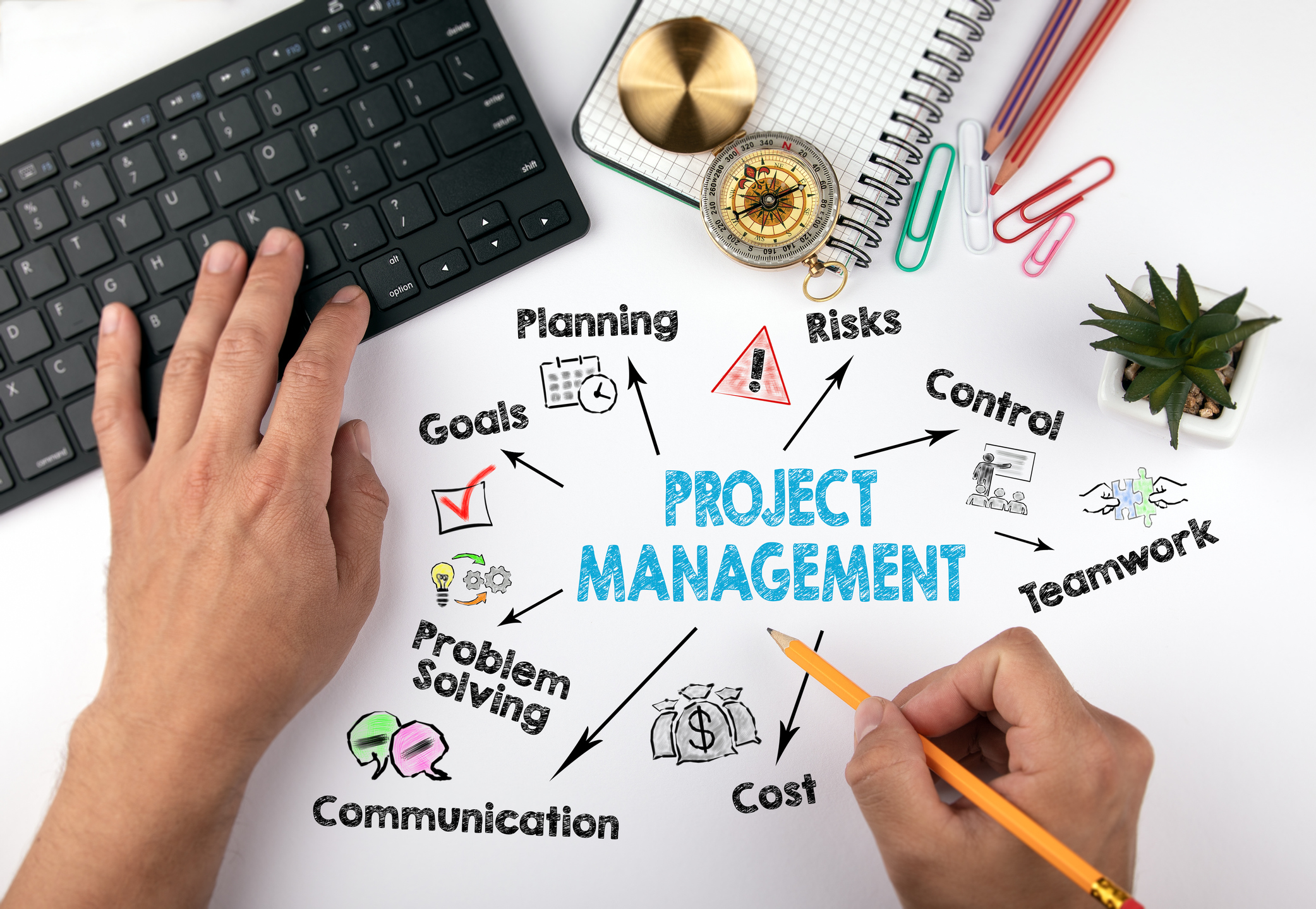What is the Role of a Project Manager?
When you think of a project manager, what comes to mind? Maybe someone who’s responsible for juggling tasks, coordinating meetings, and making sure deadlines are met. While that’s part of the job, being a project manager is much more complex. Project managers have a wide range of leadership responsibilities. Most importantly, they bridge the gap between strategy and execution, bringing teams together to turn ideas into actionable outcomes.
But what does it actually take to be an effective project manager? And how do you find one who’s both qualified and a good fit for your team once you’re ready to hire? Whether you’re a founder, part of a startup team, or managing a complex operation, having a project manager with the right skill set can make all the difference between a project that succeeds and one that stalls.
But First Things First…
Why Do You Need a Project Manager?
Straight up, a project manager is your secret weapon. Imagine starting a major project without a leader. You might have amazing ideas and a motivated team, but if nobody is managing the timeline, budget, and all the other moving parts, chaos can quickly set in.
Project managers have a unique ability to break down the big picture into manageable pieces. They combine technical and conceptual capabilities with well-refined soft skills to align project teams with external stakeholders. They keep everyone on track, communicating with stakeholders, managing risks, and ensuring that the team is aligned on the goals and objectives. Their goal? It’s to deliver successful projects.
In fact, studies show that companies using skilled project managers see improved communication, reduced costs, and higher overall productivity. So, the question isn’t really “why” you need a project manager—it’s more about how to find the right one.
How Do You Know Who Can Get the Job Done?
It’s a valid question. And a tricky one. While anyone can claim the title of Project Manager, not everyone has the core qualities to excel in the role. That’s why it’s essential to understand what sets a highly effective project manager apart from the crowd. Whether hiring an internal employee or testing the waters with a freelancer, here’s what to look for in a highly effective project manager.
The 6 Fundamental Traits
#1 – See the Big Picture AND the Details

Have you ever worked with someone who’s all about vision but struggles with executing the steps needed to make it happen? Or maybe you’ve worked with someone who’s great with details but misses the bigger goal? The best project managers strike a balance between the two — they can see the forest AND the trees.
A highly effective project manager might start by asking questions like, “Does the project’s timeline fit the budget?” or “Are the client’s expectations realistic given the available resources?” They’re not afraid to dig into the details while keeping their eyes on the primary strategic goal. They understand that without careful attention to what is priority now vs what the intended project outcome is, a project can easily veer off course.
You’ll want to always look for a project manager who can balance outcomes with expectations.
Practical Tip: If you’re a business owner, test your project manager’s ability to balance big-picture thinking with detail orientation by discussing a complex project and asking how they’d break it down step by step.
#2 – Connect the Dots
You’ve probably been part of projects where the left hand didn’t know what the right hand was doing. Maybe the sales team didn’t understand what the product team was developing, or marketing overspent their budget because updated numbers weren’t provided to the department in a timely manner. These types of miscommunications can slow everything down.
Much like refining big-picture expectations for the client, a project manager must show the team how each individual’s efforts impact the project’s goal. To accomplish this, a project manager must be a master communicator. They need to translate the project roadmap so that everyone understands it. Communication must resonate with everyone regardless of project role, subject matter expertise, culture, or previous experience working on a project team. Because once the dots are connected, everyone can follow a clear path toward a successful project outcome.
Effective project managers don’t just keep the team updated — they connect the dots between all stakeholders.
Practical Tip: During your next project meeting, ask each team member how their work contributes to the end goal. If they struggle to answer, it might be time to bring in a project manager to improve clarity.
#3 – Build Trust With the Team
Trust is the foundation of any successful team, but it doesn’t just appear out of thin air. A strong project manager understands that trust must be earned through consistent actions, empathy, and open communication. They take the time to understand their team members—not just each person’s special skills but also their personalities, motivations, and even potential biases.
Have you ever been part of a team where everyone trusted the leader? When people trust their manager, they feel more comfortable sharing ideas, raising concerns, and collaborating effectively. This trust builds a more cohesive team and drives better results.
An effective PM doesn’t stop at assigning tasks. They build rapport, create a positive team culture, and empower their team members to perform at their best.
Practical Tip: The most effective project managers often schedule regular one-on-one check-ins with team members to understand their individual challenges and motivations. This not only helps build trust but also allows them to identify potential issues before they escalate.
#4 – Handle Conflict with Empathy
Being a trustworthy leader does not mean turning a blind eye to conflict. Here’s a reality check: conflict is inevitable in any project. Human nature dictates that project teams will encounter issues and disagreements along the way. Whether it’s a disagreement over priorities or a clash of personalities, how conflict is handled can determine the project’s success or failure.

Think about a time when conflict within a team led to project delays or even failure. What if someone had stepped in early, tried to understand both sides and found a win-win solution? This is where an effective project manager shines. They not only resolve issues with win-win solutions but also ensure that everyone feels heard and respected in the process.
The best project managers don’t shy away from conflict; instead, they address it head-on — with empathy and fairness. This fosters a healthier team dynamic and keeps the project moving forward, even in difficult times.
Practical Tip: When interviewing a new project management candidate, ask them how they would address conflict within the project team. Look for a response that doesn’t take sides and balances their actions between empathy and assertiveness.
#5 – Bring Candidness to the Conversation
While it can be challenging, being candid is one of the most vital traits of an effective project manager. It’s never easy to deliver bad news or tell a client their expectations are unrealistic. But being upfront about potential issues is crucial to keeping a project on track.
How often have you been involved in a project where poor communication led to misunderstandings or unmet expectations? A great PM isn’t afraid to call out a poorly conceived business case, timelines that are too tight, or inadequate budgets. They’ll raise concerns early to prevent bigger issues down the line. The key is for the project manager to approach these conversations with respect and clarity, ensuring that both the client and team members are aligned.
Practical Tip: Encourage your project manager to share concerns openly during project reviews. Creating an environment where candidness is valued can significantly improve project outcomes.
#6 – Demonstrate Knowledge Based on Experience
Project management isn’t something you can master overnight. Here’s the breakdown: earning a PMP® certification requires 36-60 months (3-5 years) of leading projects, depending on the person’s level of education. Additional requirements include an intense educational program and passing a formal exam. PMPs® must also adhere to a strict Code of Ethics and Professional Conduct. Finally, PMPs® undergo continuing education as a requirement for periodic recertification.
The bottom line is that it takes time and experience. That means making mistakes, learning from them, and growing continuously. This is why certifications like PMP® (Project Management Professional) matter. They’re a testament to the project manager’s knowledge, experience, and ability to apply best practices to real-world projects.
While certification doesn’t guarantee success, it certainly improves the odds. These professionals bring a wealth of experience to the table, which helps them foresee potential pitfalls, manage risks effectively, and navigate complexity. So if you don’t have a certified project manager on your team, you might want to explore whether it could be a worthwhile investment for your business. 
Practical Tip: If you’re hiring a project manager, ask about their most challenging projects and how they handled them. Look for examples that showcase their experience and problem-solving abilities.
Don’t Forget Your Due Diligence
Hiring the right project manager takes time and careful consideration. While the six traits described in this article are critical, it’s also important to think about how a potential project manager fits with your company’s culture and industry. Are they adaptable? Do they have experience in your specific field? These factors can make a big difference in whether they’ll thrive in your organization.
When you’re interviewing candidates, take the time to ask open-ended questions that allow them to demonstrate their skills in real-life scenarios. And don’t settle for the first candidate that comes along. No matter how limited your time is, look at several qualified candidates and complete your full due diligence during the hiring process. When you weigh all your options, you’ll have a better chance of finding the most qualified person and the best fit for your company and culture.



